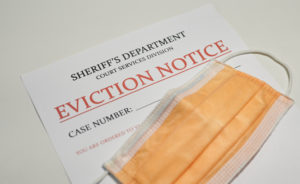A state court jury in Philadelphia has returned a $20 million verdict against Johnson & Johnson’s Ethicon division, including punitive damages designed to punish the manufacturer over problems with the Ethicon TVT-Secur transvaginal mesh. The 12-member jury hearing the case returned the verdict after testimony was given by Plaintiff Margaret Engleman, demonstrating she suffered life-altering injuries when the mesh eroded inside of her.
Two prior trials in Philadelphia have resulted in damage awards against Ethicon that totaled approximately $26 million. A 2015 case led to a $12.5 million verdict for an Indiana woman and a 2016 case led to a $13.5 million verdict for a New Jersey woman. The pelvic mesh mass tort has another 183 cases pending.
Ethicon and other transvaginal mesh manufacturers have faced tens of thousands of similar claims brought by women throughout the United States, each involving allegations that the mesh used for repair of pelvic organ prolapse and female stress urinary incontinence migrated through the vagina, causing infections and other painful injuries. Many of the manufacturers have reached vaginal mesh settlements to avoid potential jury verdicts.
The U.S. Food and Drug Administration (FDA) issued warnings concerning transvaginal mesh implants in 2008 and 2011. In 2011, the federal regulator updated its prior notification to include that complications tied to transvaginal mesh were “not rare,” that transvaginal mesh does not appear to have any clear benefits for patients diagnosed with pelvic organ prolapse (POP) when compared to non-mesh methods, and that transvaginal mesh devices may also present additional risks that may include infection, incontinence, mesh erosion, pain, recurrence of prolapse, and urinary problems. Perforation of the bowels, bladder, and blood vessels were also associated with transvaginal mesh device implants.
To address these concerns, the FDA reclassified transvaginal mesh from a moderate to a high-risk device. This means that transvaginal mesh device makers must go through the agency’s stricter pre-market approval process, which mandates medical device companies to submit data proving their devices are both safe and effective.
Three additional Ethicon mesh trials are scheduled over the next two months, and the manufacturer has indicated that it intends to appeal last week’s verdict.

As a partner with D'Arcy Johnson Day, Andrew D'Arcy has been involved in some of the nation’s most high-profile cases and investigations. His practice includes serious automobile accidents, medical malpractice, wrongful death and product defect cases. Andrew has been personally responsible for numerous multi-million dollar settlements and verdicts on behalf of his clients. He has been recognized by his peers as an "AV" rated attorney, the highest possible rating given by Martindale-Hubbell publication. Andrew has been named a "Super Lawyer" by New Jersey Monthly magazine each year consistently since 2013.











Comments for this article are closed.